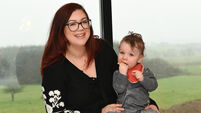Joanna Fortune: My child is struggling with reading in class

Should I get him assessed for dyslexia or wait for him to catch up?
If your child's teacher is not concerned about his reading capacity at this stage, do not rush into an assessment he may not even need. Reading is nurtured and developed in school from ages five to eight years (and beyond, of course), which means your son is still very much in the 'learning to read' (and specifically learning to read with fluency) phase of his education.









